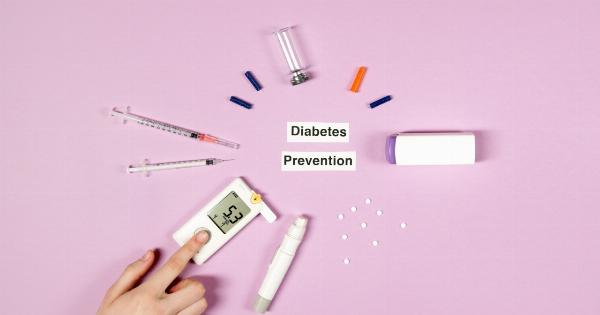Attention Deficit Hyperactivity Disorder (ADHD) is a neurodevelopmental disorder that affects both children and adults, making it difficult for them to focus, control impulsive behavior, and regulate their activity levels.
According to the Centers for Disease Control and Prevention (CDC), approximately 9.4% of children and 4.4% of adults have been diagnosed with ADHD in the United States alone. Management of ADHD often involves a combination of therapy, lifestyle changes, and medication. However, in recent years, there has been a growing debate surrounding the prescription rates of ADHD drugs and whether they are the ultimate solution.
This article delves into the controversy, explores alternative treatment options, and considers important factors related to ADHD medication.
Understanding ADHD and its Impact
ADHD is a complex condition that affects individuals in various ways. It is characterized by symptoms such as inattention, hyperactivity, and impulsivity, often leading to difficulties at school, work, and in personal relationships.
While the exact cause of ADHD remains unknown, research suggests that a combination of genetic and environmental factors contributes to its development.
Diagnosing ADHD accurately can be challenging as it requires a comprehensive evaluation of an individual’s symptoms, behavior, and medical history.
The diagnostic criteria for ADHD have evolved over time, leading to an increased awareness of the condition and subsequently higher diagnosis rates. However, the rise in ADHD diagnosis rates has also sparked concerns about possible overdiagnosis and the subsequent prescription of medication as the primary treatment method.
The Controversy Surrounding ADHD Prescription Rates
One of the primary concerns surrounding ADHD prescription rates is the potential for overdiagnosis and overmedication.
Critics argue that the increasing number of ADHD diagnoses and subsequent prescriptions of stimulant medications like Ritalin and Adderall may not always be warranted. They raise concerns about misdiagnosis, relying solely on subjective symptomatology, and the influence of pharmaceutical companies in promoting medication as the primary treatment.
Furthermore, there is growing skepticism about the long-term effectiveness of ADHD medication.
While stimulant medications have been proven to be effective in reducing the core symptoms of ADHD in the short term, their efficacy over extended periods remains a subject of debate. Some studies suggest that medication may lose its effectiveness over time, highlighting the importance of considering alternative treatment options.
The potential side effects of ADHD medication are another key consideration. Stimulant medications can cause various adverse effects such as decreased appetite, sleep disturbances, and mood swings.
While these side effects are generally considered temporary and manageable, their prevalence raises concerns, particularly in cases where long-term medication use is necessary.
Alternative Treatment Options for ADHD
ADHD management extends beyond medication, and various alternative treatment options have shown promising results in improving symptoms and overall well-being.
These options aim to provide individuals with sustainable and comprehensive approaches to managing their ADHD without relying solely on medication. Some noteworthy alternative treatment options include:.
1. Behavioral Therapy
Behavioral therapy, such as cognitive-behavioral therapy (CBT), focuses on teaching individuals with ADHD effective strategies to modify their thoughts and behaviors.
This therapy helps individuals develop coping mechanisms, improve problem-solving skills, and enhance self-control. CBT has shown positive results in reducing ADHD symptoms and improving academic and social functioning.
2. Psychoeducation
Psychoeducation plays a crucial role in helping individuals and their families better understand ADHD.
Educating oneself about the condition, its symptoms, and available management strategies can empower individuals to take an active role in their treatment. Psychoeducational interventions provide knowledge and support to individuals, enabling them to make informed decisions about their treatment options.
3. Lifestyle Changes
Implementing lifestyle changes can significantly impact ADHD symptoms. Regular exercise, a balanced diet, sufficient sleep, and stress management techniques can help minimize symptoms and improve overall well-being.
Additionally, creating a structured environment, implementing routines, and practicing organizational skills can enhance focus and productivity.
4. Mindfulness and Meditation
Practicing mindfulness and meditation techniques can be beneficial for individuals with ADHD. These practices help improve attention, impulse control, and emotional regulation.
Mindfulness-based interventions, such as mindfulness-based cognitive therapy (MBCT), have shown promising results in reducing ADHD symptoms and enhancing overall psychological well-being.
5. Support Groups and Coaching
Joining support groups or working with ADHD coaches can provide individuals with a supportive network and valuable techniques for managing their symptoms.
These resources offer practical advice, emotional support, and a sense of community for individuals navigating the challenges associated with ADHD.
The Importance of Individualized Treatment
When considering treatment options for ADHD, it is essential to recognize that every individual is unique. What works for one person may not necessarily work for another.
Therefore, personalized and comprehensive treatment plans that consider the individual’s specific symptoms, lifestyle, and preferences are crucial.
It is also important to note that medication can be a valuable tool in managing ADHD for some individuals.
For those who experience significant impairment in daily functioning or struggle with severe symptoms, medication may provide the necessary support to enhance their quality of life. Nonetheless, a holistic approach that combines medication with alternative treatment options often yields the best outcomes.
The Role of Healthcare Providers
Healthcare providers play a pivotal role in addressing the controversy surrounding ADHD prescription rates. They must exercise caution when diagnosing ADHD and prescribing medication.
A thorough evaluation, involving multiple sources of information and considering alternative treatment options before resorting to medication, is crucial.
Moreover, involving patients and their families in the decision-making process empowers them to actively participate in their treatment plan.
Open discussions about the benefits, risks, and potential side effects of medication, as well as the availability of alternative treatment options, can help ensure informed decision-making.
The Future Outlook
As our understanding of ADHD continues to evolve, so does the approach to its treatment. The future outlook for managing ADHD appears optimistic, with ongoing research exploring innovative interventions and personalized approaches.
Collaborative efforts between healthcare providers, researchers, educators, and individuals with ADHD will shape the future of ADHD management, moving beyond the reliance on medication alone.
In conclusion, while medication plays a significant role in managing ADHD symptoms for many individuals, it is important to consider alternative treatment options and approach ADHD management holistically.
The controversy surrounding ADHD prescription rates highlights the need to establish a balanced and individualized approach that takes into account the unique needs and circumstances of each person with ADHD. By incorporating a combination of therapy, lifestyle changes, and medication when necessary, individuals with ADHD can achieve improved symptom management and overall well-being.






























